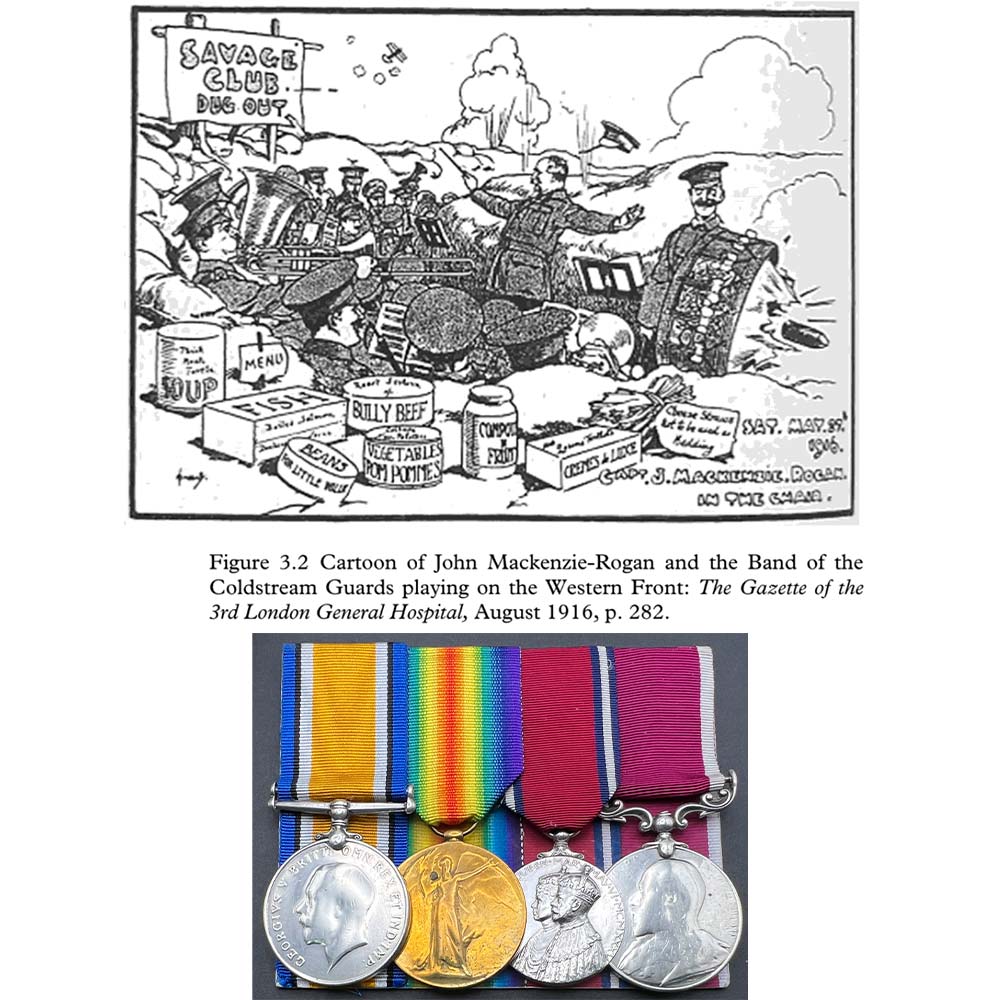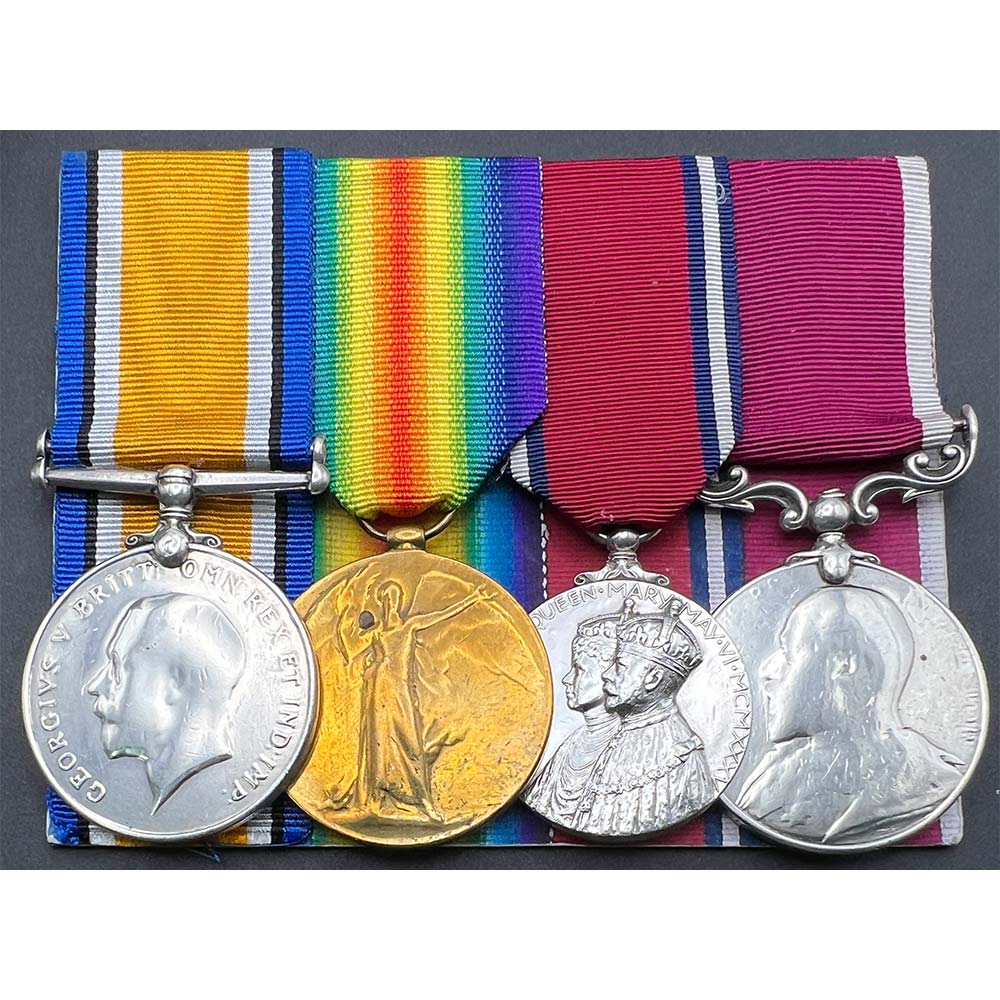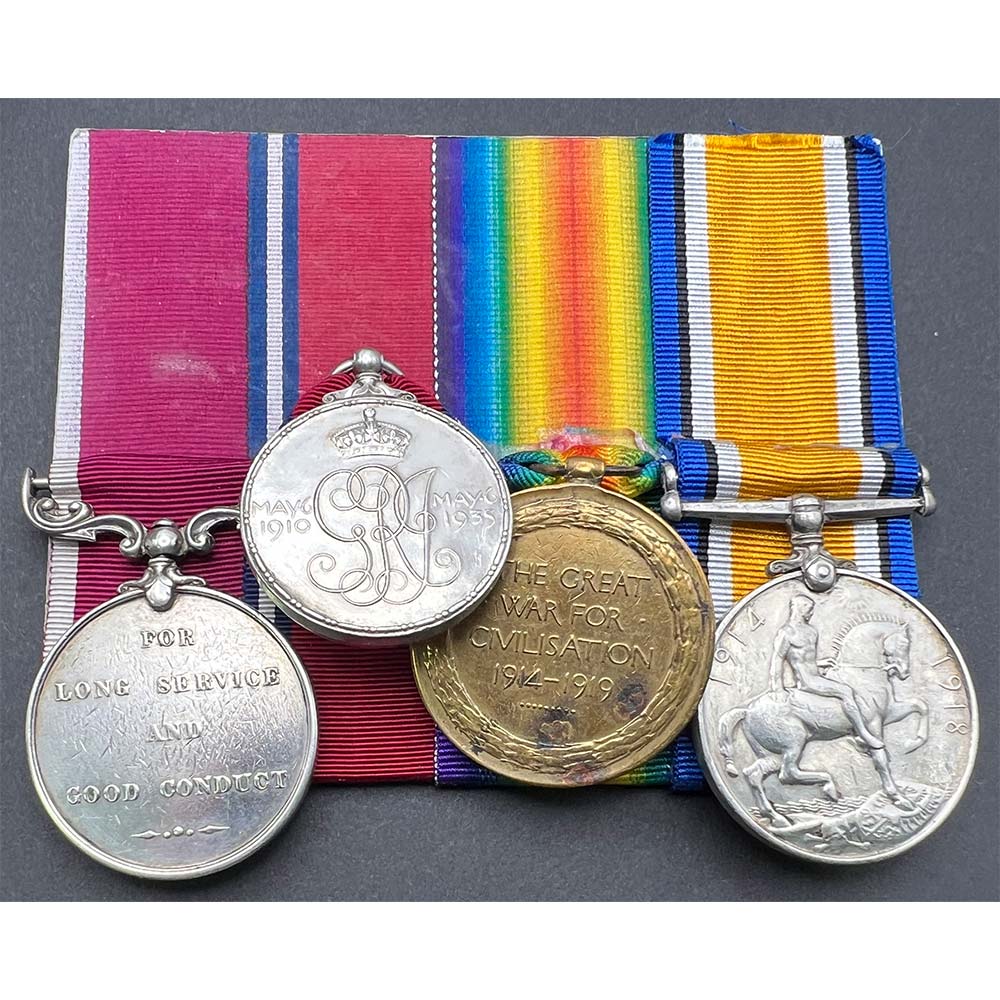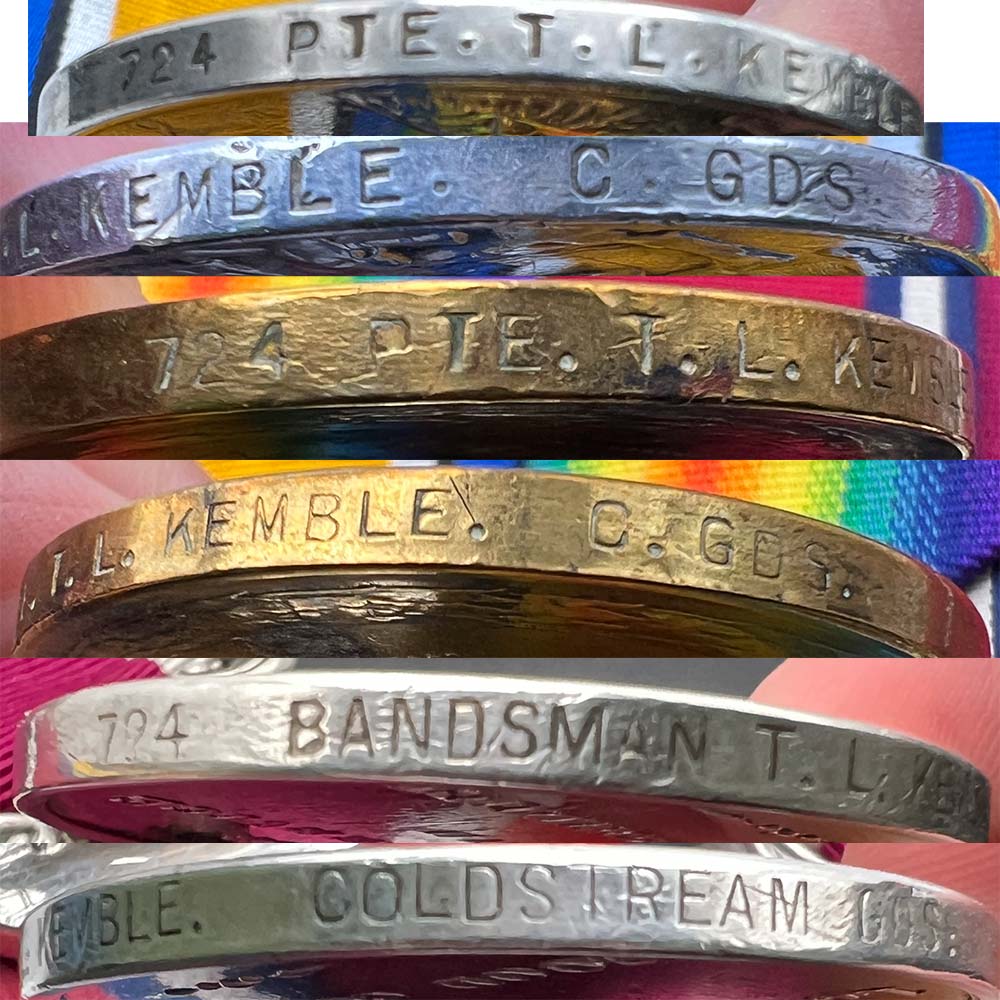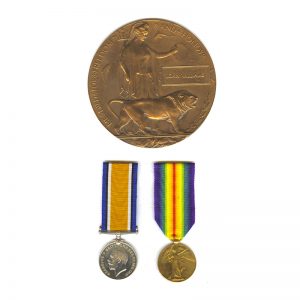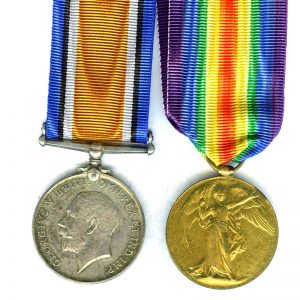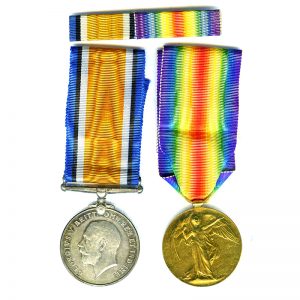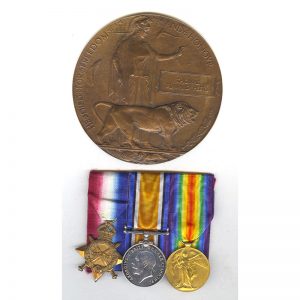Description
British War & Victory Medal, 1935 King George V Silver Jubilee Medal (Confirmed), Army LSGC, EDVII, issue, Musician Thomas L. Kemble, Coldstream Guards. Long serving Army Musician.
One of a small number of Bandsman who went out to France with the Coldstream Guards Band to play for the troops, he went over 2 times, for their first two visits of 14 weeks or so during 1916 and in 1917.
Notably they received special permission from the General in Command to “play the battalions going in and out of the line. This had not been done by any band before.”
“We took them by surprise a couple miles from La Gorgue and they happened to be our own 3rd Battalion, Commanded by Colonel John Campbell… They, good chaps, were tramping along, each man carrying his 70 or 80 pounds of kit, and many of them bent over with the weight of it. But, at the first tap of the big drum the difference in those self-same men was a wonderful sight to see, and when the band began to to play there were cheers you might have heard from miles away. I saw tears trickling down Colonel Campbell’s face. It was wondrous and very affecting experience. We played them for 5 miles or so, then returned to La Gorgue.”
“The Coldstream Guards Band had their own ‘small experience of the real thing’ during their performances which were often accompanied by earth-shaking shells exploding all the time a few hundred yards away from us and a big air fight proceeding simultaneously.”
“The fighting men, who had every of kind of danger and discomfort to face – these too, so everyone felt, ought to have their own Music.” – Bandmaster Rogan recalls his visit to France in command of the Guards Band.
BWM & Victory officially impressed: “724 Pte T.L. Kemble. C. Gds.”
Roll notes him as a Musician, these entries including his fellow musicians has Musician crossed out to name the medals as Privates.
1935 Jubilee, unnamed as issued.
Army LSGC officially impressed: “724 Bandsman T.L. Kemble. Coldstream Gds” Issued in Army Orders during 1903.
1935 Jubilee confirmed on the medal roll, one of only 13 Officers and 20 NCOs and Men of the Coldstream Guards to earn the Medal.
The roll notes that he was the sole Bandsman to earn the medal and was present from the Regimental Staff.
Also present was his Lieut and Director of Music J.C. Windram, L.R.A.M.
Being 64 years old at the time he was most likely the oldest representative of the regiment present.
The medals are in good condition albeit the obverses only of the 3 named medals have been “Proudly” polished over decades of service, no edge knocks and naming all clear.
Thomas was awarded his Army LSGC during 1903.
He was probably there for this event noted on the Coldstream Guards official website: “The Coldstream Guards Band became the first band to visit North America when it travelled to Canada in 1903, one of two western tours around that time.”
Thomas Lemuel Kemble was born in 1871 in Battersea, Surrey.
He first attested for service as No 1077 in the Bedfordshire Regiment, before joining the Coldstream Guards on 6th January 1897.
He was deployed to France with the British Expeditionary Force 2 times between 22nd January 1916 to 29th April 1916 and again from 30th May 1917 to 31st August 1917 as a Bandsman.
He was discharged not long after the Jubilee on 14th April 1936.
The following extract recalls his service in France as part of the Guards Band lining up with his postings from his papers from the Book, “Sounds of War, Music in the British Armed Forces during the Great War”, by Emma Hanna 2020:
“In early 1915, Sir John French was insistent that the BEF ‘desperately needed bands, if morale in the ranks was to be maintained’. Kneller Hall dispatched instruments and music to the Western Front, although Kneller Hall’s Commandant, Colonel T. C. F. Somerville, thought this was an opportunity to get rid of the older instruments which were returned and better stock requested. The supply of instruments to fighting units was haphazard, and heavily reliant on charitable donations. This was also the case in the French Army where troops were supplied with instruments by the Ligue Francaise, the Ligue des Patriots and the Touring Club de France which provided flutes and violins, mandolines and guitars.
Meanwhile, Bandmaster Rogan had made requests to take the full regimental Band over to the troops.
However, permission was not granted until later in the autumn of 1915, when the War Office decided to send out bands of the Brigade of Guards in turn for spells of three months’ duty with the Guards Division.
By 12 November 1915, the Band of the Grenadier Guards played to the Coldstreams in a concert at La Gorgue.
On 25 June 1916, 2 and 3 companies of the 1st Battalion Coldstream Guards enjoy a concert given by the Band of the Scots Guards.
Thirty-three members of the Coldstream band went out to France and Flanders on three tours (Figure 3.2).
Two tours of fourteen weeks where undertaken January to May 1916 and also in 1917, and a longer visit of four and a half months took place in 1918 when the band accompanied the Guards Division from Berle-au-Bois to Lagnicourt, Cambrai, Mauberge, then on to Cologne where the band stayed for a month.
Rogan recalled that it was the highlight of his Army career as he felt that ‘the fighting men, who had every kind of danger and discomfort to face — these too, so everyone felt, ought to have their own music’.”
